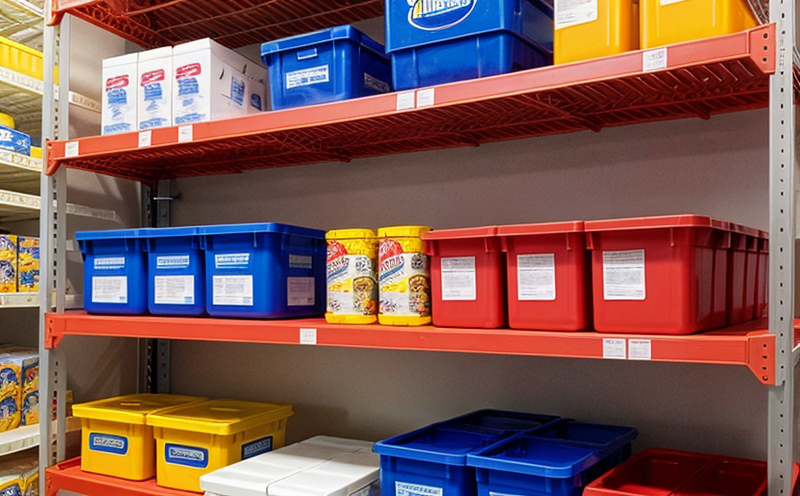ISO 81592 Shelf Life Analysis in Herbal Supplements
The ISO 81592 standard provides a robust framework for assessing shelf life and stability of herbal supplements. This service is critical for ensuring that manufacturers meet regulatory requirements, maintain product quality, and protect consumer health. By conducting comprehensive shelf life analysis, we can predict the duration during which an herbal supplement will remain safe and effective under specified storage conditions.
The first step in this process involves selecting appropriate samples from different batches or production runs. These samples are then subjected to rigorous testing using various analytical techniques such as high-performance liquid chromatography (HPLC), Fourier transform infrared spectroscopy (FTIR), and gas chromatography mass spectrometry (GC-MS). This ensures that any potential degradation products can be identified early.
Once the samples have been analyzed, statistical methods are employed to determine the rate of change over time. This helps in establishing a reliable shelf life estimate based on real data rather than assumptions. The results from these analyses are then compiled into detailed reports which include recommendations for optimal storage conditions as well as potential risks associated with extended shelf life.
Understanding the stability properties of herbal supplements is crucial not only because it impacts patient safety but also due to its economic implications. For instance, improper handling can lead to increased waste rates and higher production costs. Therefore, accurate prediction of shelf life allows companies to optimize inventory management practices and reduce expenses associated with spoilage.
In addition to predicting overall shelf life, this service goes beyond simple duration estimates by providing insights into specific aspects affecting longevity such as temperature sensitivity or light exposure effects. Such information is invaluable for formulating effective preservation strategies that extend the useful lifespan of these products without compromising efficacy or safety.
Furthermore, compliance with international standards like ISO 81592 adds significant value to brands seeking certification or recognition in global markets where stringent quality controls are enforced. It demonstrates commitment to high standards and enhances brand reputation among consumers who prioritize trustworthiness when making purchasing decisions.
Industry Applications
| Application | Description |
|---|---|
| Formulation Optimization | Determining optimal formulation parameters that enhance stability and extend shelf life. |
| Packaging Evaluation | Evaluating the impact of different packaging materials on product integrity over time. |
| Storage Condition Testing | Assessing how various storage conditions affect the quality and efficacy of herbal supplements. |
| Batch Consistency Monitoring | Ensuring consistency across batches by comparing shelf life data from different production runs. |
| Regulatory Compliance | Meeting regulatory requirements for shelf life claims on packaging labels and marketing materials. |
| New Product Development | Supporting the introduction of new products into the market by validating their shelf life performance. |
| Risk Management | Identifying potential risks associated with extended shelf life and implementing mitigation strategies. |
| Cost Reduction | Optimizing inventory management practices to minimize waste due to spoilage while maintaining supply availability. |
International Acceptance and Recognition
The ISO 81592 standard has gained widespread acceptance across numerous countries and regions, making it a widely recognized benchmark for shelf life analysis in the pharmaceutical and nutritional supplement industries. Its adoption reflects an international consensus on best practices aimed at ensuring product safety and efficacy.
Many regulatory bodies around the world have incorporated references to ISO 81592 into their guidelines and regulations. For example, the U.S. Food and Drug Administration (FDA) considers compliance with this standard as part of its overall quality assurance process for dietary supplements. Similarly, European Medicines Agency (EMA) standards often include requirements based on ISO norms.
Recognition from these authoritative bodies underscores not only technical proficiency but also ethical responsibility towards consumers by promoting transparent labeling practices regarding shelf life information. This contributes significantly to establishing trust between manufacturers and end users.
Beyond regulatory compliance, embracing international standards like ISO 81592 offers several advantages for businesses operating globally. It facilitates seamless integration into supply chains, simplifies export procedures, and enhances competitiveness in foreign markets where stringent quality controls are required.
Competitive Advantage and Market Impact
By offering ISO 81592 shelf life analysis services, laboratories can significantly bolster their position within the competitive landscape of food & feed testing. This service not only meets stringent regulatory demands but also supports strategic business goals related to innovation, efficiency, and consumer satisfaction.
One key advantage lies in gaining a deeper understanding of product characteristics that directly influence market positioning. Knowledge gained through detailed shelf life assessments allows companies to differentiate themselves by highlighting unique selling points such as extended freshness periods or superior quality assurance measures compared to competitors.
Another significant benefit pertains to operational efficiency improvements. Accurate shelf life predictions enable better planning and execution of production schedules, inventory management, and distribution logistics. This leads to reduced costs associated with overproduction or stockouts while ensuring continuous supply availability.
In terms of customer satisfaction, reliable shelf life information fosters trust among consumers who value transparency about product quality attributes. Such insights contribute positively towards building long-term relationships based on mutual respect and shared objectives.
Moreover, adhering to international standards like ISO 81592 helps create a positive image for the brand in terms of corporate social responsibility (CSR). By prioritizing safety and efficacy above all else, companies demonstrate their commitment to sustainability and ethical practices which resonate well with environmentally conscious consumers.





